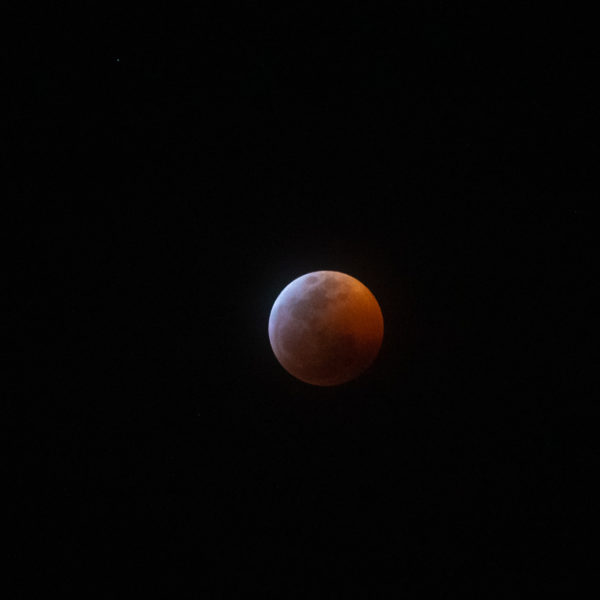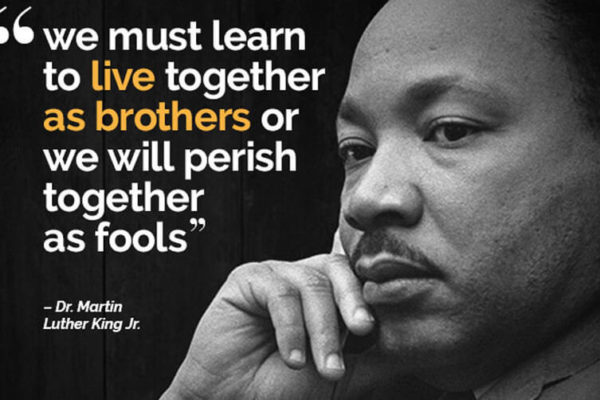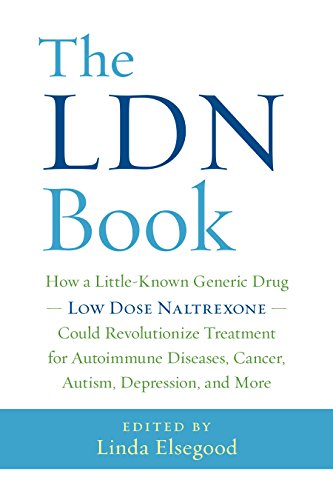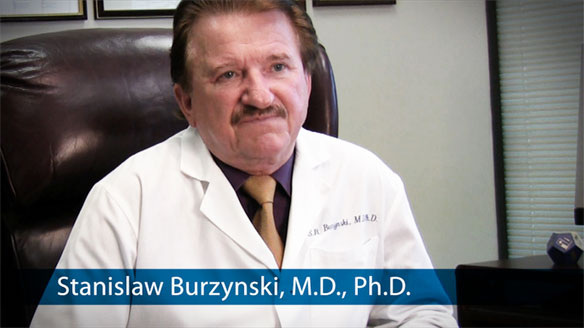I hope that we all take this day, not just to celebrate the fact that some of us get off of work, but to honor a man who had such peace and love in his heart and wanted everyone to have the same.
Before watching the YouTube, I want you all to be aware of the fact that LDN (low dose naltrexone) has cured many cases of cancer in animals. So, if you have an animal companion suffering from this disease, please let your veterinarian know that LDN can provide hope. You might even want to share this story:
My eldest daughter, Kristina, captured this photo of the Wolf Blood Moon last night!

And now, enjoy this amazing interview:
Me: Hello, Jamie. How are you doing?
Jamie: Hi!
Me: Erik, hello, sweetie.
Erik: Hi.
Me: Guess who we’re going to talk about. It’s a little [past MLK Day, but we’re going to talk to the man.
Erik (with a lot of attitude): We are going to talk to the man!
I laugh.
Me: So, Erik. What do you think, dude? Can you get it in?
Jamie: Done. He’s here.
Me: Okay. Well he must have seen us coming! Mr. King it’s a pleasure!
Jamie: I love his cadence.
MLK: Thank you for having me.
Me: You’re the king in my world. I have a lot of respect for you.
MLK: You are full of flattery and I like it.
Me: Oh good! The first question I want to ask is what was your spiritual mission while you were here on Earth as Martin Luther King, Jr.?
(Pause)
Jamie: I gotta tune in a little better. I can hear him, but I just kind of get a little enamored that I forget to…
Me: Oh, sure. He’s got a beautiful voice.
Jamie: Yeah, I call it a cadence, but I don’t know if that’s the word to say. It moves and…
Jamie laughs.
Jamie: He told me “Thank you.”
MLK: That’s probably how I got as far as I wanted to go.
Me: That’s true. People listened.
MLK: My spiritual mission on Earth—
Jamie: I’m doing it again!
MLK: To create a movement.
Jamie: He’s so nice.
MLK” To bring the idea that whenever you’re looking out of your eyes, you’re going to be looking at the person, their heart, their truths and not their skin color. Not their human beingness. You’re going to be looking at their heartness. Their true essence. So my spiritual mission was to get people to look at the essence and not the package that’s shone and polished.
Me: You’re still eloquent.
Erik: If can just get Jamie there, we’d have a great interview.
Me: Well, hey, Erik, you come up with a question!
Jamie laughs.
Me: And don’t be so hard on poor Jamie. I can still put you over my knee!
Erik: I’d like to see that, Mama.
Jamie: He asked MLK about his death, his assassination. Erik is comparing it to his own death.
Erik: You were killed by somebody else. What that the right timing for you? What do you think about that know that you’re looking back on your life?
MLK: You know what, son?—
Jamie: He reaches out and touches Erik on the shoulder. That was a surprise to me.
MLK: Not only was I told by my god (he touches his chest.) Not only was I told by my supporters, by my wife, by my people that to support my message, my life had to end.
Erik (interrupting): You mean to tell me that you knew exactly when it was going to happen, like hey, if you were to stay at that hotel, it was going to go down?
MLK: Well son, I knew I wasn’t safe there. I was told to move from that location, but I announced to the community that I would not live in fear. It was the biggest example that I could provide for anyone paying attention to all of the work that we had done, that we had stood on is to not live in fear. Was I to live in fear of getting the message that this was to be the end? I knew. My god told me that when my life ended, the people would rise up in my honor, and many people would chose to fill my shoes, but as long as I stayed alive, I’d be the only one who’d fill my own shoes.
Me: Well it seemed like, um, you must have had done sort of spiritual contract with your assassin so that your death could be louder and draw more attention. Is that true? That’s what I’m getting.
MLK: I do have to declare that I love each and every person on Earth and that I do exude love for my assassin. Whether we want to use the word, “assassin” or not, I’d prefer to call it a catalyst. My assassin was the catalyst for my message to be heard worldwide. Often, if there is so much goodness in the world, it will lie flat until something—the shot, the pain, the drama—becomes the catalyst for that goodness to be heard.
Me: Okay. What about you, Erik? What other question do you have?
(Pause)
Jamie: Erik is continuing with his death.
Erik: I want to know if –
Jamie. Mr. King is also his father. He’s the junior.
Me: Mm hm.
Jamie: It’s kind of funny to hear them; they’re talking back and forth about the namesake.
Erik: After your death, did you follow the movement, and did you help it in any way, and if so, how?
Me: Good question, Erik!
Erik makes an “all that” pose.
Jamie (chuckling): Erik looks so waif-like and thin next to—
Me: The portly man.
Jamie: He’s coming in so dense and strong. He’s just got this posture. And there’s skinny Erik.
Erik: I’ll get you back later.
Jamie: Yeah, you do that.
MLK: I did. I did. My biggest concern was for his family. My girls. I wanted to make sure they understood that what had happened shouldn’t make them a victim. That was my biggest drive. When I looked out over all the others who were grieving in the fabric of humanity. Sometimes you need the great divide, the challenge to exist, before the tear can be overcome, so I encouraged as many people as I could—blacks. Whites, business owners, service men, politicians. I need to reach all races and social statuses to make sure that this would continue and I had the opportunity to do that.
Me: What do you think about race relations now, though? I mean, certainly, thank god, African Americans have certain freedoms, but there are still some problems.
Jamie: I love how he talks with his hands. I mean he REALLY talks with his hands.
She makes big hand gestures.
Me: Really?
Jamie: They’re out these, strong gestures not down by his side and weak.
MLK: There is still a tear in the fabric in racism, but now it’s not as focused on equality as it used to be. It’s not about “where are their rights.” Now is it completely equal? No, and neither is it between women and men, but the biggest suppression we have now is how the races are viewed. The African American community, our Black community, is seen as violent, and we treat them this way, knowing it or not. Even when we extend equal rights, we turn around and lock our doors. Treating them this way makes them behave this way. We have come a long way, but we have not finished the race.
Me: Yeah. So what can we do? What needs to happen and—
Jamie looks behind her.
Me: What? Is he moving behind you?
Jamie (whispering): No, I have spirits behind me. I’m not alone right now. He started talking really loud and I was like, “You’re just speaking to me, right?” Then Erik goes, “No, turn around.” We got spirits here!
MLK: It all comes from love.
I guess he’s talking about the spirits, but I’m not sure.
Jamie: He’s talking REALLY loud!
MLK: This is the way that we need to live our life. Before I died, I talked about equality-seeing the essence of the person, not their exterior, the color of their skin. If I were living today, standing in my shoes, I would preach to love one another.
Me: Yeah.
MLK: If you—
(Pause)
Jamie (leaning back in her chair with a smile): Can I ask you to say that again? I feel a pressure in my back. I’m going to scoot over really close.
Me: Back up, spirits!
Jamie: I know! They’re all here to hear him talk, I guess. I don’t know. I’ve never had a crowd before.
Me: He’s popular over there, too, I guess.
MLK: There was a movement here, in spirit, in those dimensional planes, that exists to support the movement on Earth. It is the walk of peace. It is the walk of love. I stand behind other great people with the message as well. Gandhi, Mother Teresa—
Me: Wow, he’s got some pretty good friends.
Jamie: I know, right?
Erik: Pretty cool. We should sit around a fire, smoke a peace pipe and talk about this.
Jamie and I laugh.
Me: I wonder what would be in that peace pipe for Erik.
Erik: Marijuana!
Jamie: It’s got MLK laughing!
Me: Oh, really? Hm.
Jamie: He’s just laughing at Erik. He’s so entertained.
Weird that my son is entertaining MLK.
Erik: Mom, ask the question.
Me: Well there’s so much violence. What about the black on black crime? What about this whole police and African American struggle and turmoil we have? What can you say about that?
Jamie: He’s got these hand gestures where is hands are pointing down and he’s talking like this.
She mimics the gestures.
MLK: We have to place this responsibility on our marketing. This police brutality is not just on the blacks.
I know. Erik was the victim of police brutality.
MLK: It’s on the homeless; it’s on the lazy, it’s on those without money. It’s only those with money in our society that can buy their way to peace. I blame the marketing today for acknowledging specific cases to make it appear that there is an imbalance in our culture for police brutality to only be directed against blacks. There’s a great goodness in marketing, and there’s a great evil in marketing, and it’s about the direction you share the news. Again, it’s not about the skin. It’s about the injustice to the person, him or herself. It’s about the survival of humanity, not the races. You asked me a little earlier about black on black crime.
Me: Yeah.
MLK: Violence. This is where I feel the suppression of –
Jamie gets confused.
Jamie: Phew!
Erik: Jamie, shake it off!
Jamie: All right. All right.
MLK: The suppression of the neighborhoods, the communities, the cities, the states, the nation, the government as a whole. It starts small and the weight gets bigger as it extends out, and it puts these low income, same race—you’re specifically asking about the Blacks. It puts them together—and with that suppression of believing that they’re helpless, that they came in as fighters and need to stay as fighter, and we need to protect ourselves from them because they can never change their essence, who they are. It is a shame to every person walking the Earth. They are missing the light in these people. They’re missing their purpose. If we don’t extend a welcoming hand, they will never know any better. If you lived in a dark room all of your life, would you even know how to turn on the lights
Me: Mm mm.
MLK: You would not.
Me: Well, in a way, we had the New Deal, and we had a lot of social programs, government programs for the African Americans, and I heard someone say that, in a way, that’s really been hard on the Black community because if you’re paid Welfare and fully supported, then you don’t seek a job, you don’t keep the family together.
Jamie: He’s screaming.
MLK: We are not looking for handouts!
Me: But many of them get it. [Whites do too, of course} and I’m wondering if we’re creating a class of the professional poor.
MLK: Yes!
Me: It’s like trading one plantation for another.
MLK: Yes, you cannot go in and say, “I see you lacking and I will fill the hole for you.
Me: You have to have faith in them.
MLK: You must take them from the community. If you need a counselor to come in a counsel these souls, you can’t hire them from the outside and put them in. You take someone from the community who already has that status as a counselor, and you train them in that community where they already have roots. Then they can speak to their community and to their neighborhood. You must raise them, not give to them.
Me: And a lot of that is happening in some communities, but we need so much more of them. How can we get that to happen? How can we help them out of that professional poor class and that way of life?
Jamie: He’s talking about better programs, and they don’t necessarily have to be government funded. I’m sorry I’m paraphrasing; He’s giving me the goosebumps. He says the government has more of an agenda, more strings attached to the money that creates the program, so it’s very difficult to give exactly hat the people need. But if you have community funding, if you have businesses coming together, they can teach those who want to learn. Remember, we’re reaching out to any human being, not just Blacks. Any human being. If they don’t want to learn, they will not learn. We must take those who are ready to grow. And we grow them and we say, “Now that we have grown you, what can you do for your community.
Jamie: I don’t know what just happened. I almost feel like I’ve been shocked in a way. It’s as though something moved. I’m sorry; say it again.
MLK: Everybody who is old enough to understand community, and this starts about 6, 7, 8 years old; we start to understand community from churches, from schools in the classrooms, from after school programs where we understand that we’re bonded. Girl Scouts, Boy Scouts. Once a person a person understands the concept of community, it’s their responsibility to give back to that community. So parents, I hold you responsible. If you’re an adult, I hold you responsible for not asking, “How am I giving back? I’m not interested in your money.” I’m not interested your insight, your compassion to others and the way that you see the light and the love inside of each living persons. I’m not standing here just in behalf of the Black communities. I’m standing for all of the people in need who want to grow. Those are the ones I stand for.
Me: Well I’m very concerned—it needs to start in the family even before the support starts in the community—I’m so concerned about the breakdown in some African American families. No father, mothers who are on welfare—some of them are—but it’s just broken. What can we do?
MLK: This is where it’s so important to have community structure. In my day and age, community structure was built around the church and as each decade has past, the church has not become the center of the community anymore. But yet know one is standing up and building that center. If it isn’t’ the church, we need a place to unite. Where’s that going to be? It’s not our schools. That’s falling apart. There is more anger wrapped around schools than there is support and learning.
Me: That’s a shame. Well what if we—
Erik: I agree with you. This bothers me the most.
Me: Well Erik, what about you? Let’s hear your question.
Erik: What life beyond the Martin Luther King life did you pull from the most?
MLK: You mean the most similar?
Erik: No, no, no. The one where when you died, you went, Holy shit. I want to do that again but make it a whole helluva lot bigger.
Me: Or the one that influenced your life as Martin Luther King, Jr.
MLK (reaching out and putting his hand on Erik’s shoulder): All right, son. I got it. I got it.
(Pause)
Jamie: This normally happens when we get into past lives. They get into the imagery rather than telling the story.
Me: I noticed that. Unless you can show the audience pictures, that’s not going to work.
Jamie: He’s showing me a life in Africa in a tribe. There’s no concrete. They’re living in huts, in a jungle. It’s a beautiful jungle. I mean big lush leaves. Thick.
MLK (laughing): It was many moons ago.
Jamie (chuckling): Instead of saying years.
MLK: I was a woman in the tribe and there were four other outlying tribes around mine, but there were five that were closer, about 30 to 50 miles away from each other. That would be their territory to walk and hunt, get food. And none of them wanted to get along with the other tribes. They each had different belief systems, different gods, different ways of living life. I was captured and taken to one of the other tribes, and she was meant to be tortured, but she was so inquisitive, “Why do you believe this? Teach me” that they loved showing her their greatness, so they let her go. Instead of going home, she went to the next tribe, and she went to all they outlying tribes and did the same. They needed these red berries at a certain time because it meant something to them, so they didn’t harvest them at that time.: When the moon was here and when the sun was here. So she was able to put together things and create a level of peace where they were all together, and there was no more fear about going to away from your village. You weren’t going to be taken away anymore. It didn’t create any strong bonds and connections, but it was simply all about learning [unintelligible]
Me: Something messing up. Make those spirits back up. Back up, spirits! (They were messing with the energy, which affects the equipment.)
Jamie: He’s telling them to.
Me: Tell them to move! Maybe their energy is too much.
They do and things clear up a little.
MLK: Can we continue?
Me: Yeah. We’ll try. We have one more question after this. What do you think about affirmative action?
MLK: You explain it to me. So you think it’s helped the cause? It seems like we’re not having faith in then to stand their ground and rely on their abilities.
Jamie’s audio cuts out the long time, but I remember he disagreed with affirmative.
Me: I don’t know. I would think that if you didn’t have that equality, that means you don’t have faith in that minority to be just as good, even though they might be.
Jamie: He’s clapping his hands loudly.
MLK: It’s a way of suppressing them in society. It’s saying, “You don’t have to try hard enough anymore because we have this law that says you have a leg up because of who you are from birth. It is not equality.
Me: That’s right. Erik, any more questions before we close?
Erik: I just want to know if I can shake his hand.
Me: Go for it. I’m sure he wouldn’t mind.
MLK: Absolutely.
He does one of those bro hugs where they embrace.
Erik: It’s been a pleasure having you here. Thank you for being so prompt and patient with us.
Me: Yeah, thank you so much. I never heard you say the word, “Prompt” before, Erik!




